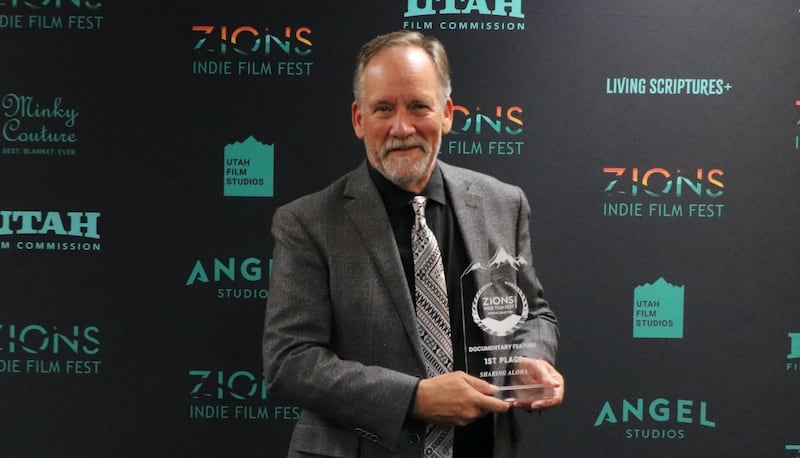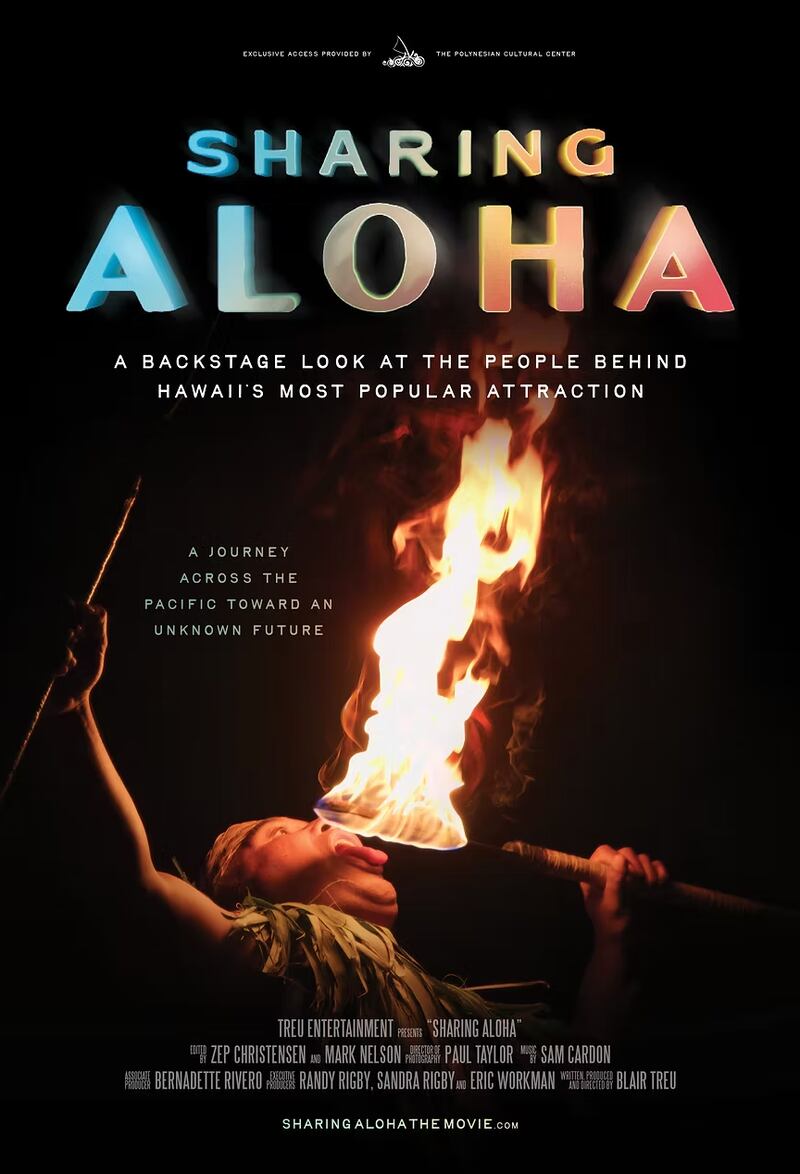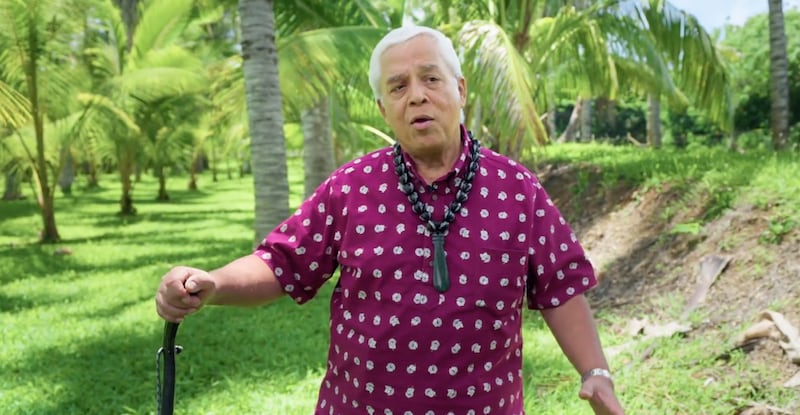This article was first published in the ChurchBeat newsletter. Sign up to receive the newsletter in your inbox each Wednesday night.
The new film “Sharing Aloha,” about the Polynesian Cultural Center and BYU–Hawaii, won the 2025 Zions Indie Film Fest first-place prize for documentary feature on Saturday, days after its world premiere at the Scera Center for the Arts in Orem, Utah.
One topic raised in the film that did not make my initial story on the premiere is the historic relevance of the site of the center and the university. They are in and next to an area that was a “pu‘uhonua,” a place of refuge in ancient Hawaii that Elder D. Todd Christofferson of the Quorum of the Twelve Apostles mentioned last month during a campus devotional at BYU–Hawaii, which is in the town of Laie.
“History tells us that in ancient times, Laie was a ‘pu‘uhonua,’ or place of refuge wherein transgressors of law or custom could come to be cleansed of their transgressions and return to society,” Elder Christofferson said. “Just as ancient Israel established sanctuary cities, so also did the early peoples of these islands. It seems most appropriate then that Laie should have become a place of refuge and gathering for the Latter-day Saints.”
In the film “Sharing Aloha,” a historian shared a centuries-old story about a warrior reaching the wall of the Laie pu‘uhonua just as his enemies were about to capture him. He made it over the wall, and they stopped because the place was universally recognized as a sanctuary. It was a place where non-combatants could go for safety during battles and where those who broke laws could seek absolution or forgiveness from a priest.
Every major island had a pu’uhonua. In fact, there is a National Historical Park on the island of Hawaii called Puʻuhonua o Hōnaunau. Its website says that many Hawaiians sought refuge by running from their pursuers to the coast, then swimming to the puʻuhonua.
Pu’u means a hill or mound. Honua is a pan-oceanic concept dating back 5,000 years, meaning land, earth or placenta. In that culture, land is something that surrounds, protects and gives life, according to Tevita Ka’ili, a BYU–Hawaii professor of culture and history.
Laie was a small, sparsely populated village but included a pu’uhonua.
“The pu’uhonua changes people’s lives. When you leave the pu’uhonua, you’re a totally, totally different person,” BYU–Hawaii graduate and Hawaii historian Cy Bridges says in “Sharing Aloha,” which notes that thousands of students have experienced the spirit of pu’uhonua.
The director of “Sharing Aloha” said the film festival award will help the documentary as he seeks to find the largest platform he can to share it with the wider public in future months.
“The Zions Indie Film Fest is growing in popularity and importance, so the win for best documentary has real significance, especially since there were some really good films there,” said Blair Treu, who also directed the 2015 film “Meet the Mormons.”
“Sharing Aloha” also was announced tonight as “official selection” for the London International Visionary Festival, Treu told the Deseret News.
Treu said he will continue to take the movie on the festival circuit around the world to build momentum in hopes that a major streamer like Netflix or Amazon Prime Video or Hulu will pick it up. All proceeds will go to scholarship funds for students.

“We have been nominated for ‘best documentary’ and ‘best director’ at the upcoming International Christian Film Festival in Orlando, Florida,” Treu said. “That’s exciting, too, but the bottom line is simple: We made this film to be seen and ultimately benefit these young students from all over the Pacific who work and perform at the Polynesian Cultural Center.”
My Recent Stories
Here’s how much Light the World Giving Machines raised for charity in 2024 (March 5)
Latter-day Saint leader invites BYU students to pursue ‘foolishness’ instead of fool’s gold (March 5)
‘Sharing Aloha’: Emotion-rich new documentary about the Polynesian Cultural Center full of ‘magic’ (March 1)
UVU President Astrid Tuminez at funeral for husband: ‘May Jesus hold you till we meet again’ (Feb. 28)
Church says court ruling was a sign of its integrity in use of tithing donations (Feb. 27)
About the church
The church released new photos of the interior work underway during the Salt Lake Temple renovation.
President Heber J. Grant’s journals are now available digitally. Read more here or go directly to them here in the Church History Catalog.
Church leaders and officers again were busy ministering around the world:
- Elder David A. Bednar and Primary General President Susan Porter ministered in in the Middle East.
- Elder Ronald A. Rasband went to the Philippines, where he asked church members to rededicate their lives in preparation for temples being built.
- Elder Dale G. Renlund traveled to Zambia, where he shared 5 foundational principles for life.
- Elder Patrick Kearon spoke to a conference on overcoming pornography and said, “Repentance is a beautiful way of living.”
- Sister Amy A. Wright of the Primary general presidency and Sister Kristin M. Yee of the Relief Society general presidency taught and ministered in Cameroon, Ethiopia, Kenya and Tanzania.
Church leaders held the ceremonial groundbreaking for the Cali Colombia Temple.
What I’m reading
Baseball is experimenting with an automated strike zone. That means officials have had to measure every single player to figure out what size each one’s strike zone is. Turns out, if you can believe it, some players had been lying about their height!
Whoops. Citigroup mistakenly credited a customer’s account with $81 trillion last year when it meant to send just $280, per CNBC.
Behind the Scenes




